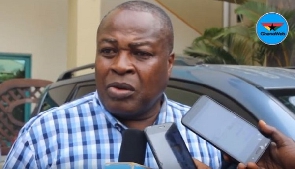The Abosso Glass Factory, once a vibrant company manufacturing and supplying bottles for the beverage industry in Ghana and beyond, is now a white elephant.
Despite the noise made by politicians who visited the factory since it was placed on divestiture, nothing concrete has been done to resuscitate the company.
Heavy equipment that were installed at the factory set up by Ghana's first President, Dr. Kwame Nkrumah, some years ago are now at the mercy of the weather. The heavy equipment, the cost of which could run into several billions of cedis, are deteriorating at neck-breaking speed with nobody apparently concerned.
The company, which used to employ hundreds of people from Abosso, Tarkwa and other neighbouring communities, was handed over to the Togolese opposition leader, Mr. Gilcrist Olympio in the early 90s. He subsequently changed the name of the factory to Tropical Glass Factory and resumed production.
Though Olympio's administration managed to install heavy machinery at the factory to boost production, it could still not live up to expectation due to heavy indebtedness to its creditors.
The company still owes the Electricity Company of Ghana (ECG) several billion of cedis for power consumed, compelling the latter to disconnect power supply to the company, and thus exacerbating its plight.
When the NPP government came to power in 2001, the company was taken away from Olympio and placed on the divestiture list. Since then, several ministers of the current government have visited the factory with sweet promises of reviving it, all of which have turned to be false.
This reporter was told that when the company was put on the divestiture list in 2003, a number of foreign investors applied to operate it. Jacq Industries and Bac Limited were selected from among the lot to go through the final process. Since then, nothing has been heard again from the government even though installations at the factory, especially the furnace for baking the bottles, are fast deteriorating.
Latest information indicates that thieves have started stealing the underground cables and some of the installations. When The Chronicle visited the factory early this week, the area was found to be weedy with a skeleton staff manning the place.
Some of the people interviewed at Abosso expressed surprise about the sudden turn of events because the government promised them the factory was going to be brought back to life.
According to the residents, the glass factory and the former Abosso Goldfields were the two companies that were sustaining the local economy during the days of Kwame Nkrumah.
They noted that the collapse of these two companies, the latest being the glass factory, had brought untold hardships on them because many of the residents had derived that livelihood from them.
The Chronicle started reporting about the glass factory some three years ago, at a time when the heavy machinery at the factory were not protected by anybody. Later, the Ministry of Trade and Industry came in to employ some of the deployed staff to keep an eye on the machines; this is the only thing the government has done.
Another factory that has suffered a similarly fate is the Bonsa Tyre Factory at Bonsa, near Tarkwa in the Wassa West district. This company, which used to manufacture the popular firestone wheel tyres, has also collapsed with the government apparently showing no concern.
This company was also established by Dr. Kwame Nkrumah and strategically sited at Bonsa, which is near the large rubber plantations where the requisite raw material could easily be tapped to feed the factory.
The rubber plantation itself had been divested and is now the Ghana Real Rubber Estate.
The people of Tarkwa and Bonsa have also been agitating for the re-opening of the company for sometime now, but nothing has come out of their protest.
The company at the moment is at the mercy of the weather with its roofing sheets and machinery fast deteriorating.
Click to view details



Business News of Tuesday, 1 August 2006
Source: Ghanaian Chronicle
















